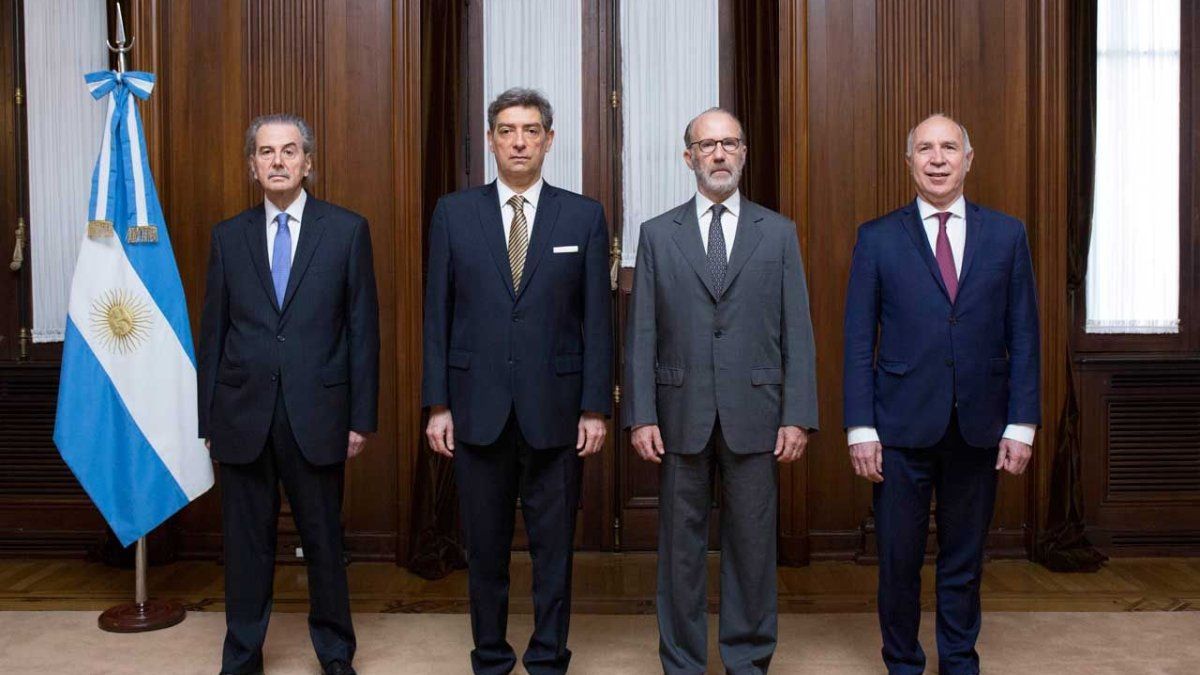It regulated by agreement the mechanism for appointing replacements when there was not a majority of three votes in the same direction. It aims to avoid the argument of a possible paralysis of files following Maqueda’s departure. They challenge decree “in commission.”
The Supreme Court has just dictated an agreed Its objective is to regulate the drawing of the so-called “co-judges” who are the ones who must act in the event that the majorities are not reached to issue a sentence. All facing December 29, when Juan Carlos Maqueda leaves the court after having reached the limit of 75 years, and only three judges remain on the highest Court. The decision contains a message addressed to the Executive Branch and the explicit institutional “concern” it expresses for a “small” Court. In essence, it prevails to subtract arguments for the need for a decree that appoints Ariel Lijo and Manuel García Mansilla to a “commission” under the pretext of a paralysis in the rulings.
The content you want to access is exclusive to subscribers.
Through 16 pages, the judges signed Agreement 41 that establishes the mechanism for the drawing of co-judges between the presidents of the Federal and National Chambers. This procedure prevents the files from being paralyzed due to a possible lack of majorities (three concurring votes, which as of December 30 would imply unanimity between Horacio Rosatti, Carlos Rosenkrantz and Ricardo Lorenzetti). For cases in which majorities are not reached, the process of drawing lots for co-judges is expedited and the file is prevented from being paralyzed between the members.


They argue from the Palace of Courts that Legal security would be guaranteed – another message to the Executive – by establishing that it is the same co-judge (the one who is drawn) who always resolves analogous cases, to avoid dispersion of jurisprudence (opposing opinions depending on who has to rule, if different co-judges are drawn for similar cases), which would alter majorities and it would generate that depending on the draw, there would be different possible destinations for the files.
Additionally, The Supreme Court added a message to the Senate and the Executive Branch announcing that the lists of co-judges for cases in which the presidents of the Federal Chambers cannot join the Court have expired.. These lists were generally made up of registered attorneys who, at the proposal of the Executive, had to be voted on by two-thirds of the Senate to be valid. Some time ago, the Court canceled this replacement mechanism and opted to convene the presidents of the Chambers. At the same time, there is a ruling that orders that these lists of lawyers go through the same Senate validation process as a regular judge of the Court, a consensus that the policy did not renew when previous lists expired and when it was intended to enforce lists voted by simple majority.
Source: Ambito
David William is a talented author who has made a name for himself in the world of writing. He is a professional author who writes on a wide range of topics, from general interest to opinion news. David is currently working as a writer at 24 hours worlds where he brings his unique perspective and in-depth research to his articles, making them both informative and engaging.



